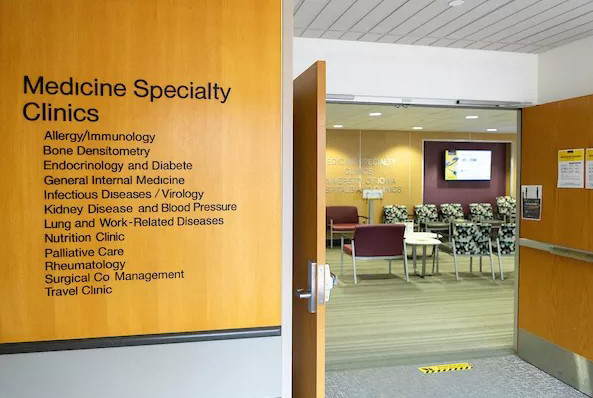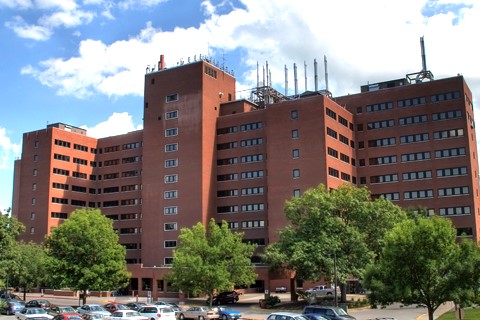 During the course of the year, the nephrology fellow will rotate through several outpatient nephrology clinics. The individual clinics emphasize different areas of nephrology, allowing the fellow to participate in all aspects of outpatient care.
During the course of the year, the nephrology fellow will rotate through several outpatient nephrology clinics. The individual clinics emphasize different areas of nephrology, allowing the fellow to participate in all aspects of outpatient care.
The Continuity of Care (COC) clinic meets weekly for a half day and actively involves the fellow in the long-term management of renal-related problems. In this clinic, individual patients will be followed by a specific fellow for the course of his or her fellowship training. Each patient will also be staffed by an attending nephrologist; however, the fellow is responsible for making diagnostic and therapeutic decisions, contacting the patient with test results, and functioning as the primary nephrologist for the care of the renal problems. Increased responsibility will be given as the fellow advances through the training program.
The Rare Renal Disease and the Renal Genetics Clinic is a multidisciplinary clinic staffed by specialists in adult nephrology, pediatric nephrology, genetic counseling, renal nutrition and social and financial support personnel. The clinics have a national and international reputation in treating complement-medicated renal diseases, atypical hemolytic uremic syndrome and C3 glomerulopathies. In addition, the clinics have a longstanding collaboration with the Iowa Institute of Human Genetics and Molecular Otolaryngology and Renal Research Laboratory (under the scientific direction of Dr. Richard Smith), which provides onsite comprehensive state of the art genetic testing, functional complement assays and molecular diagnostic tools to facilitate evaluation of genetic and acquired abnormalities that form the bases of rare kidney disease.
 The Renal Stone Clinic is a clinic at the Iowa River Landing (IRL) that guides the metabolic evaluation of the patient with nephrolithiasis and provides management strategies for prevention (pharmacologic, dietary and lifestyle modifications) and definitive treatment (urology referral) of stone disease.
The Renal Stone Clinic is a clinic at the Iowa River Landing (IRL) that guides the metabolic evaluation of the patient with nephrolithiasis and provides management strategies for prevention (pharmacologic, dietary and lifestyle modifications) and definitive treatment (urology referral) of stone disease.
 The Veterans Administration Clinic is a general nephrology clinic with a patient population with a predominance of chronic kidney disease, renovascular hypertension, diabetes and geriatric renal disease, and with a higher representation of male patients. The exposure allows fellows to acquire a comprehensive understanding of managing renal conditions in this specific demographic.
The Veterans Administration Clinic is a general nephrology clinic with a patient population with a predominance of chronic kidney disease, renovascular hypertension, diabetes and geriatric renal disease, and with a higher representation of male patients. The exposure allows fellows to acquire a comprehensive understanding of managing renal conditions in this specific demographic.
The Transplantation clinics at the University of Iowa Hospitals & Clinics and VAMC provide the opportunity for the fellow to participate in the outpatient evaluation of the pre-transplant patient and potential donors, as well as the immediate and long-term management of the immunosuppressive therapies and complications of the post-transplant patient.